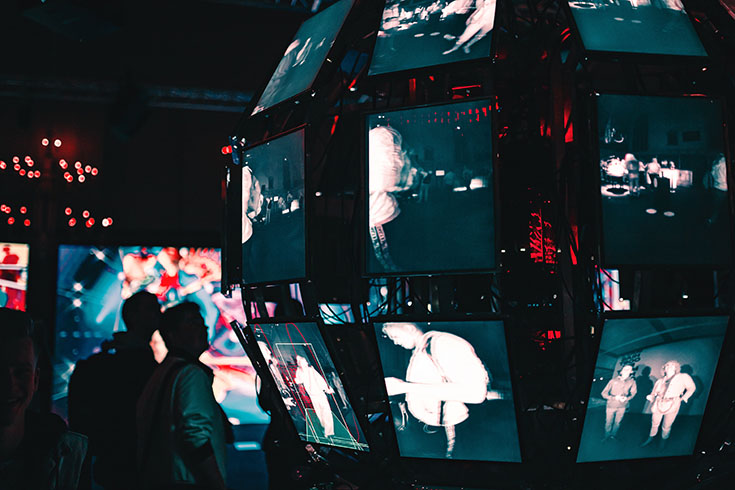Working Groups
The Mandel Center for the Humanities supports faculty and graduate student working groups on topics and themes related to the humanities. These groups provide an open environment for interdisciplinary conversations on subjects of broad interest to humanities scholars. Groups are encouraged to meet at least four times a year to discuss readings and host guest speakers, film screenings, or other events. The Center can provide funds of up to $1000 for refreshments, speaker fees, books, or other expenses. An additional $500 is available for groups to offer stipends to graduate student organizers/participants.
The Center is currently accepting proposals for reading groups for the academic year on a rolling deadline!
Current Working Groups

This group discusses the interdisciplinary scholarship about the socio-political consequences of climate change and efforts to curb its damage. We also focus on the responsibilities of liberal arts universities in general, and Brandeis in particular, to create and spread knowledge of the threat and its relationship to other forms of injustice through scholarship, teaching, outreach, and creative work in all disciplines, including the humanities. For more information, contact Sabine von Mering.
Historically, public discourse surrounding equitable education policy has been situated within broader conversations about democracy, equality, opportunity, inclusion, and other dimensions of social justice. This reading group aims to discuss education policy in those broader contexts through conversations on humanistic texts written in the past 125 years. These might include texts by James Baldwin, John Dewey, Frantz Fanon, bell hooks, Will Kymlicka, Martha Nussbaum, and others, whose work facilitates conversations aiming to bridge the divide between education policy and social justice. Then, depending on the interests of the group, we might also look at ongoing policy initiatives in antiracist teaching, special education, language policy, refugee education, adolescent mental health, adult education, edTech, charter schools, and more.
To participate email Esha Senchaudhuri (esenchaudhuri@brandeis.edu)
Past Reading Groups
Organized by: The interdisciplinary minor in Creativity, the Arts, and Social Transformation (CAST), Tom King and Toni Shapiro-Phim, co-chairs.
This ongoing and interdisciplinary MCH Reading Group aims to create a space for (1) uncovering and fighting anti-Blackness in our institutional, scholarly, creative, and curricular frameworks and practices; (2) facilitating our development as artists, researchers, educators, community-engaged practitioners, and administrators; and (3) following the leadership of our colleagues working in such areas as DEI research and implementation, Black and African American studies, and critical race studies and supporting, promoting, and celebrating their work at Brandeis. The MCH Reading Group welcomes participation by all faculty, administrative staff, and graduate students at Brandeis who (1) understand creativity, broadly defined, as a key component of their practice, research methodology, or object of study; (2) commit to centering the voices and knowledge of those whose lives have been rendered most precarious by anti-Blackness; and (3) commit to the process of learning together in community and to the principles for engagement established at our meetings.
Developing your Teaching Persona is a collaborative pedagogy reading group created with the intention of helping each other elevate our approach to classroom instruction. Meeting once a month beginning in mid-November we will discuss art of teaching, the craft of communicating our research to an undergraduate audience, and how to create a student-centered learning environment. We will supplement these discussions by inviting Brandeis faculty members to talk about their own classroom experiences. To accommodate everyone, sessions will be held in a hybrid format (although we will be serving food at some sessions so we hope to see you in person!).
This reading group facilitates conversations between medievalist and early modernists across departments, with particular focus on practical skill building and encouraging interdisciplinary collaborations. Aimed at graduate and undergraduate students, though faculty members are welcome to attend and participate, this group incorporates skill building workshops, such as learning how to use digital tools or work with archival materials, paired with relevant readings meant to encourage medievalists and early modernists to think about the application of these skills in their specific fields and future projects. This group also incorporates trips in the Boston area to promote the utilization of and familiarity with local resources.

This reading group examined recent public humanities work across disciplines and cultivated public humanities projects at Brandeis. The group identified new publics for humanities scholarship, explored diverse media and genres for engaging audiences, considered opportunities for collaborating across institutional and professional lines, imagined viable public humanities enterprises, and analyzed the curricular implications of public humanities possibilities.